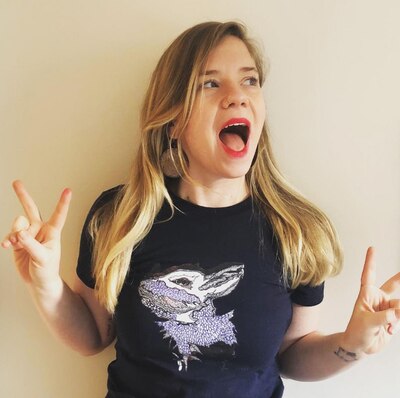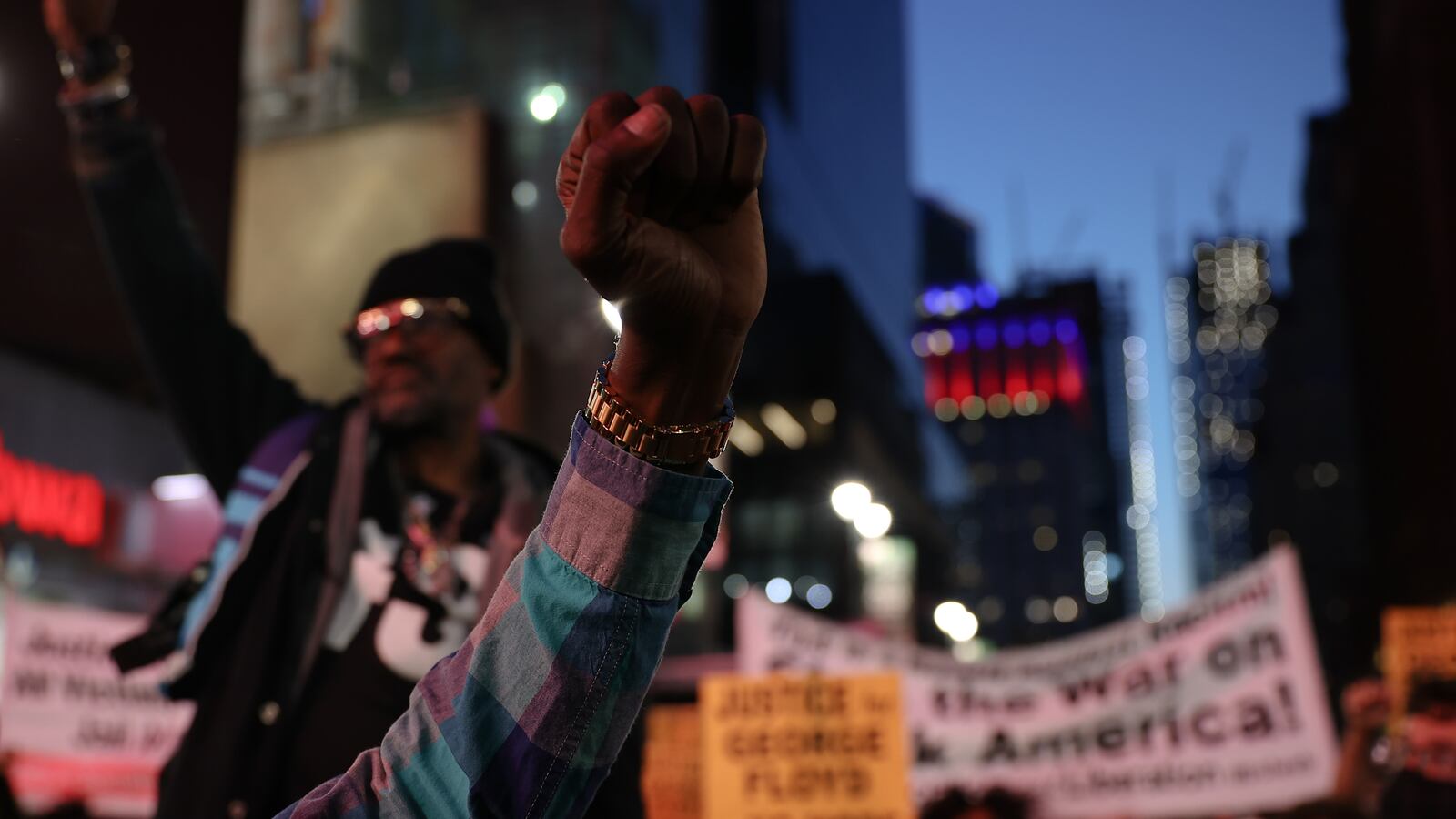On June 1 of last year, a student sent me a poem.
This wasn’t particularly unusual. I teach creative writing, and we’d spent the year creating poems, short stories, and various art projects. I work with ninth graders in New York City who identify as female or gender-nonconforming/non-binary. We spend a lot of our time on journaling and personal reflection in order to feel comfortable enough to make art.

But this poem was something special. It was a response to the murder of George Floyd and the protests it sparked around the world, and it floored me. Its author, Justein, gave me permission to share it:
“It ends with us”
I’m not saying all lives don’t matter
I’m just saying my life matters
they don’t see danger when they see you
they do when they look at my brother
It never ended with my ancestors
but it will end with us
It never stopped with Rosa on the bus
but it will with us
An innocent man shot down,
yet you expect us to smile and be happy like clowns
How many more tears should we shed
when another black man is shot dead
How many mothers will cry
cause her son had to die?
Your son died, but why?
Is it because his nose isn’t straight
or the thick curls in his hair?
Is it the color of his skin
or that his lips aren’t that thin?
Do we only have to look like you
to actually fit in?
Do I have to look like you so I can live?
Why do you kill us for being bold and loving
the way we were built?
I’m not saying All Lives Don’t Matter, I’m just saying
Black People Are Killed!
Killed because of the way we were built
Trayvon, Philandro, Michael, Eric, and now George
How many more hashtags do you need
to feel our pain?
We cry today, then you spew hate like rain
No peace, no justice until you stop this
Stop killing us because you wish we didn’t exist
It didn’t end at Selma, but it will with us!
I emailed her back right away and asked if she would share the poem in class that week and whether she would mind if I crafted a lesson around it. She was happy to share; she wanted it to be heard.
In class that week, after we did our opening journal entry and after Justein shared her poem, I gave my class a choice: We could eschew any lesson for that day and spend the time reflecting on what was happening in the world, or we could make art in response to it. More specifically, we could make protest poetry. Overwhelmingly, they chose the latter.
What followed made me think more deeply about how educators can engage with activism to offer avenues for students’ critical thinking and creative expression.
I started with a body awareness activity in order to pinpoint anxiety, sadness, or other emotions my students needed to work through and had them answer questions about what was happening in the world from that body part’s perspective. This time, as always, I didn’t tell them what to write about. We took those notes into various “writing stations” I made up and created different kinds of poetry together.
When they were through, I gathered that work into an anthology.
Over the past year, I’ve repeated this lesson and added to it. In January, my students and I met just as supporters of the then-President were storming the Capitol. My students needed no encouragement and jumped into writing collaborative, community poems about what was happening.
Here’s an excerpt from “We the People,” written jointly by students Ashlyn, Makula, Mim, Kimora, and Brianna:
“We the people”, have we forgotten that phrase?
The words passed down from our founding fathers on those holy days.
We give power to the eagles above
But the ones below are not mice, their voices shall not be silenced or shunned
America is a melting pot filled with cultures and flavors from all across the lands
But once you add a pinch of lies along with a dash of salt, you turn something savory into sand.
And from “Society” by Evangeline, Fahamida, Michelle, Sarah, and Alyssa:
Society: Upset/Shocked
The events that unfolded
led the nation to have unloaded
The emotion of shock.
Surprised that people who “love”
This nation, unlocked
The unimaginable, killing off the dove.
Leaving those who fought
For the freedom of others
Upset, by the treatment they received.
A “Dark Day”, They say
The same words that reflect the takeaway.
Society marked this day
as an unforgettable grey.
Society.
I’ve come to learn that the word “activism” is a hot-button topic for a lot of educators. Recently, I received an email from someone who heard me use the phrase “art as activism.” “I find this very concerning-the idea of turning children into activists,” they wrote. “They should be given a platform where they can express what they feel no matter what that is — thru dance/music or painting — I don’t think they need to be oriented toward activism.”
The note only increased my resolve to facilitate activism in this way. Not once along the way did I ever tell my students what to write about or whom to support. What I did was offer avenues for critical thinking and creative expression. My students can look at the world and analyze whether or not what they are seeing aligns with their values as humans. And if they don’t? Then I’ve created outlets for them to express that and feel heard. Telling students they can express themselves but not call for change robs them of power.
In my mind, art has always been activism’s first cousin. Why wouldn’t I bring activism into the classroom?
Now, I am focused on building curriculums that center around art as activism in the classroom. In fact, my colleague and I ended up collaborating on a Protest Poetry workshop for teachers, which you can view here.
Justein’s poem made concrete what I’d always felt was my job as a teacher: to facilitate ways to empower students to say what they feel and then find ways for them to be heard.
The class anthology can be viewed below:
M.K. (Katie) Rainey, a native of Little Rock, Arkansas, teaches creative writing at the Young Women’s Leadership School of Jamaica, Queens. She’s also an award-winning writer whose work has appeared in Lit Hub, Writer’s Digest, The Collagist, 3AM Magazine, and more. She is the editor-in-chief of Animal Riot Press, a literary press she co-founded, and co-hosts the Animal Riot Reading Series and the feminist podcast Rosé All Day Anyways.


